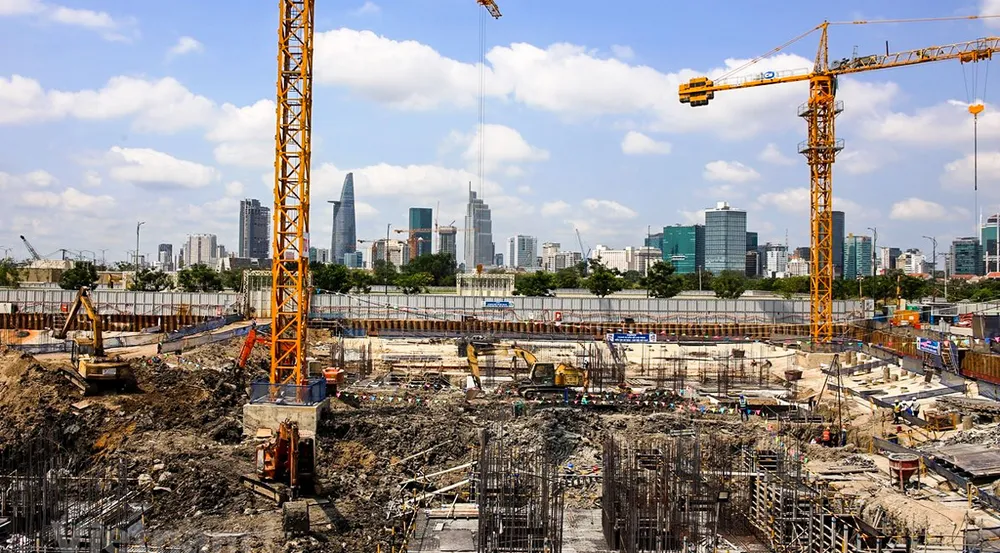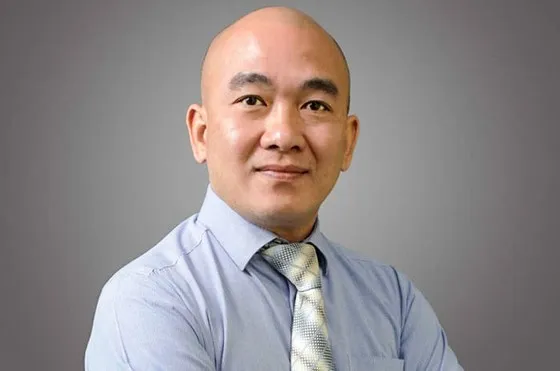
Dr. Su Ngoc Khuong believes that real estate is one field that attracts huge investment capital, with each project ranging from hundreds to thousands of billion dong. The current crisis incurred due to the Covid-19 pandemic will no doubt have a strong impact on both spending capital and the real estate consumer market, especially in the segments of resort real estate, commercial centers such as shopping malls, retail spaces, as well as office spaces for lease. When developing real estate projects such as resorts, hotels, offices for rent or shopping centers, the investment capital mainly comes from banks. With the impact of the Covid-19 pandemic, many investors are now almost financially exhausted and some even unable to pay the principal or the interest.
The housing projects too are in a dilemma. Usually, equity for these projects accounts for only 10-20%, while the rest of the capital is borrowed from banks and collected in advance from buyers. However, the ability to access bank loans for projects in the current scenario has become extremely difficult, while raising capital from customers amid rising unemployment, falling wages and income, is also proving difficult. The real estate market for resorts, hotels, offices and shopping centers has become directly affected. In residential real estate the capital rotation is quite fast, about 3-5 years, while in commercial real estate it takes 10-15 years.
 Dr. Su Ngoc Khuong
Dr. Su Ngoc Khuong JOURNALIST: - Sir, the real estate market is facing difficult times right now, but which businesses still have an upper hand?
Dr. SU NGOC KHUONG: - Overall, the Covid-19 pandemic is having a negative impact on the real estate market as well as a domino impact on more than 50 related industries such as construction, materials, labor, and finance. This clearly is a difficult time for many investors, because implementation of projects requires huge capital. On the other hand, those businesses with good financial backing and a lot of experience in real estate investment, have a good opportunity at this time. These businesses use financial leverage moderately, can overcome difficulties and seize opportunities in times of difficulties.
In the last few years, the market witnessed a lot of strong potential investors who were willing to buy and transfer projects from investors facing difficulties in real estate. It is expected that there will be some transactions taking place in the third and fourth quarter if all goes smoothly. The most active group of foreign investors are from Japan, South Korea, Hong Kong, Singapore and some European countries.
- Sir, could you please explain why foreign investors are actively looking for real estate investment opportunities in Vietnam at this time?
- In my opinion, there are three reasons. First, the real estate market in the aforementioned countries have been very well developed already and with the market saturated it is very difficult for investors to find business opportunities there.
Third, in Vietnam the real estate market, the efficiency of exploitation and cash flow for properties that have been put into operation such as hotels, shopping centers, offices for rent, serviced apartments, are very stable. These assets are foreign brands but most of the owners are domestic investors. Foreign investors often participate in management and operational services. Therefore, this is a time for foreign investors with strong financial resources to seek investment opportunities in Vietnam. Foreign investors were quite active in the years 2008 to 2011, when the real estate market was in a crisis here. Now too, when project owners are low in funds and have difficulty accessing bank loans or mobilizing capital from buyers, foreign investors can step in with strong financial advantage and management experience to complete projects successfully.
- Thank you very much.




















